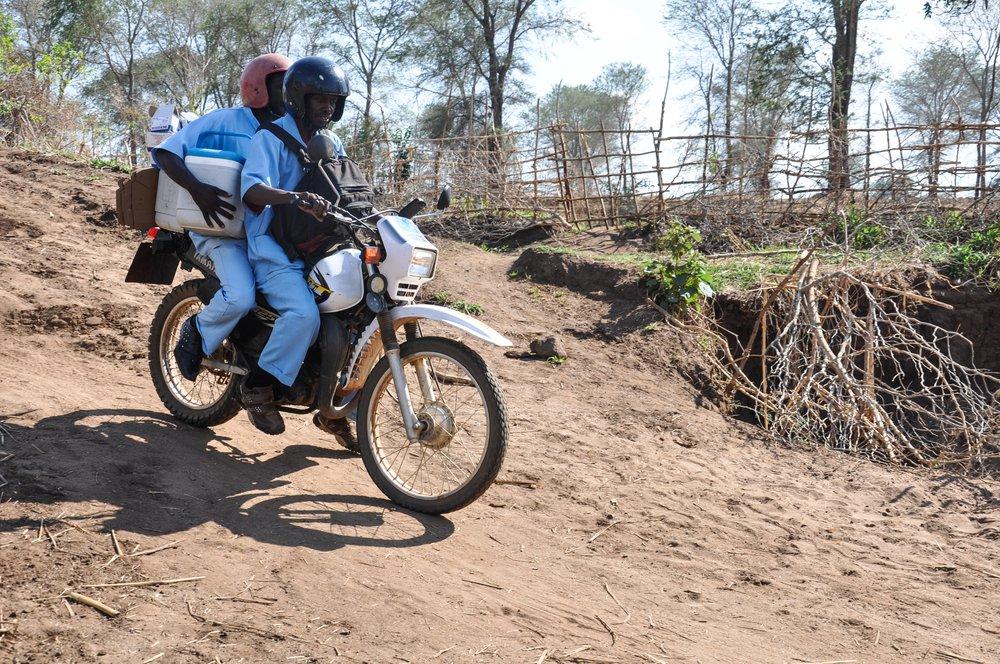Making progress toward health equity requires a granular understanding of where there are gaps in access or uptake, why those gaps exist, and what can be done to address them. Though vaccination represents only one pillar or part of the primary health care system, it is an especially important one for protecting the health of children.
According to WHO/UNICEF estimates, in 2020, more than 17 million children worldwide were unvaccinated or zero-dose: defined as not receiving the first dose of diphtheria-tetanus-pertussis vaccine (DTP1). According to those same estimates, another 6 million children were under-vaccinated (did not receive the third dose, DTP3).
“In general, it would be fair to see zero-dose and under-immunized children as indicators of gaps in the immunization system and health care inequity,” says Deborah Atherly, PhD, BScPharm, Global Head of Policy, Access, and Introduction at PATH’s Center for Vaccine Innovation and Access. “Ultimately, what we do to reach those children should also contribute to strengthening of the primary health care system as part of a country’s universal health coverage goals.”
Among the estimated 17 million zero-dose children, about half (8.8 million) live in 12 countries—Afghanistan, Ethiopia, India, Kenya, Nigeria, Madagascar, Mali, Pakistan, Somalia, South Sudan, Uganda, and Zambia. These countries encompass a diversity of settings with anticipated variability in the drivers of zero-dose and under-immunized children, which are complex, interrelated, and highly contextualized.
Reaching zero-dose children and missed communities—defined by higher rates of zero-dose and under-vaccinated children—will require tailored approaches that address multiple and intersecting sociocultural barriers and economic vulnerabilities, as well as health system challenges to delivering immunization services through the primary health care system and WHO’s Expanded Program on Immunization.
Partnering to accelerate progress
PATH leverages it extensive experience strengthening immunization systems and introducing vaccines as a core partner in the USAID-funded MOMENTUM—Routine Immunization Transformation and Equity, a global consortium that aims to reduce the number of zero-dose children.
MOMENTUM Routine Immunization Transformation and Equity and its members work with national and local health systems to diagnose obstacles to equitable coverage and respond in a variety of ways, depending on the needs, including:
- Identifying and mitigating gender-related barriers that limit caregivers’ knowledge of when, where, and why to seek immunization services and improving the timing and location of services to better meet their needs.
- Strengthening immunization supply chains to reduce stockouts of vaccines and increase their availability to allcommunities through improved forecasting and better vaccine stock management.
- Forging community and health system partnerships to identify why some children are not vaccinated and jointly plan and monitor the services provided to them.
- Engaging local leaders to promote the importance of immunization and help find local solutions to immunization service barriers.
- Supporting national and subnational planning and budgeting and mobilizing local resources to reach zero-dose children.
For example, MOMENTUM Routine Immunization Transformation and Equity has been working in the Democratic Republic of the Congo and Mozambique to understand the unique barriers faced by families of zero-dose children. Using a human-centered design approach, we engaged community members and clients in solution development. By centering the experiences of the communities we seek to support, these workshops helped the project, local communities, and immunization partners to develop tailored strategies for reaching zero-dose children and their families.





 Zero-dose children: Reaching th
Zero-dose children: Reaching th